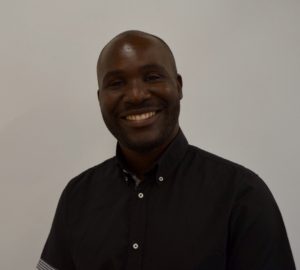On May 23rd, the Posner Center hosted Dr. Roscoe Kasujja, Director of Mental Health at Makerere University’s School of Psychology, for a discussion on Uganda’s internationally acclaimed “open border policy.”

Dr. Kasujja offered sobering words about refugees in the northern provinces and West Nile region of the country, as well as the disparity in entitlements between refugees and native citizens, which he believes is a central issue that should not be ignored by international aid workers. Dr. Kasujja touched on the need for NGOs to come to Uganda with “long-lasting, sustainable programs” that help refugees realize their true potential in life. He expressed to the audience that no matter where you come from, citizens and refugees alike need a purpose in life. In this regard, Dr. Kasujja expressed his discontent with NGOs and the international community more broadly, who seem to miss this point, or focus their energies on humanitarian aid, thus perpetuating a cycle of dependence between humanitarians and refugee populations.
Migration Policy Institute cited that 60 percent of Uganda’s labor force is active in the informal sector, and reported only a 40.7 percent labor force participation rate for youth. Dr. Kasujja believes getting the youth involved, and restoring a sense of hope for communities that have struggled to adapt to rapidly changing demographics in the country, is key to a more sustainable and prosperous future.
Despite GDP growth hovering around 6 percent annually in recent years, Uganda remains a strikingly poor nation, ranking 162nd on the Human Development Index.
We would like to give special thanks to Posner Community member Donna Read for introducing us to Dr. Kasujja via her work in Uganda earlier this year.
